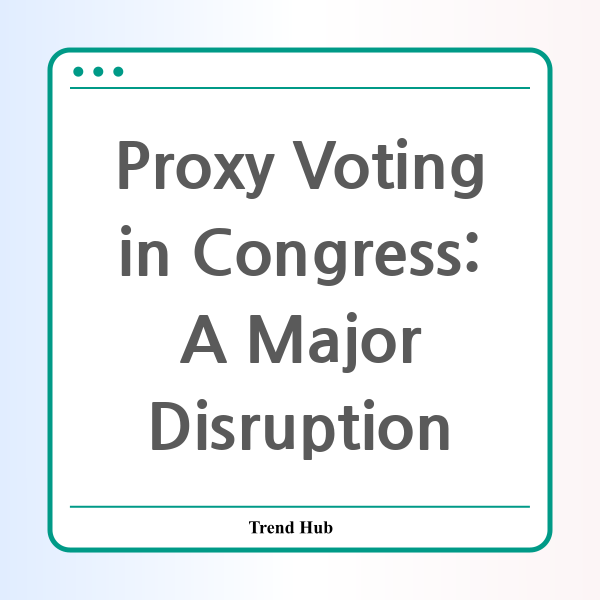* This website participates in the Amazon Affiliate Program and earns from qualifying purchases.

What happens when lawmakers prioritize party loyalty over family needs? Recent developments in Congress have sparked a heated debate over proxy voting, particularly for new parents—a topic that has led to significant political unrest.
In a surprising turn of events, the House of Representatives saw a complete suspension of voting activity following a rebellion among House Republicans. The issue at hand? A bipartisan proposal that would allow proxy voting for new parents, a measure that many lawmakers believe is essential for supporting family needs in today’s fast-paced political environment. However, House Speaker Mike Johnson and some GOP leaders have branded this proposal as unconstitutional, undoubtedly leading to friction amongst party lines.
The rebellion was spearheaded by Rep. Anna Paulina Luna, a Republican from Florida, who pushed for the proxy voting resolution. This proposal aimed to allow lawmakers who recently gave birth, or whose spouses gave birth, to have another member cast their votes for up to 12 weeks. Luna's efforts included leveraging an arcane legislative move known as a discharge petition to force a vote. Unfortunately, despite her efforts, a procedural vote that would have allowed further consideration of this critical measure was thwarted when nine Republican lawmakers joined Democrats to defeat it.
What makes this situation particularly alarming is that the failure to establish a rule for voting means numerous other significant legislative items—such as the Republican-sponsored SAVE Act, which mandates proof of citizenship to register to vote, and the No Rogue Rulings Act, intended to limit federal judges' powers—have also been sidelined.
Speaker Johnson expressed his disappointment, stating, "A handful of Republicans joined with all Democrats to take down a rule. That’s rarely done." This statement underscores the severity of the divide within the GOP and the implications it holds for their legislative agenda moving forward.
As this drama unfolds, questions arise regarding the future of proxy voting measures. The canceled votes have not only stalled critical legislation but have also created uncertainty about how Congress will proceed in addressing family-centric policies that many consider vital in today's political climate. Could this disruption be a turning point for how legislation is discussed and passed in the House?
When looking at the broader implications of such political infighting, it becomes evident that Congress is at a crossroads. The growing support for proxy voting among some members could signal a shift toward greater inclusivity in the legislative process, especially for those balancing the demands of parenthood and public service. However, with GOP leaders firmly against it, the path forward remains murky.
In light of these developments, it will be interesting to see how House leadership navigates these challenges in the coming weeks. Will they be able to regroup and push through the necessary reforms that align with party priorities, or will this internal strife lead to a more profound reevaluation of their approach to governance?
The dichotomy of priorities within Congress also reflects broader societal issues, where work-life balance and personal responsibilities often clash with professional obligations. As lawmakers continue to grapple with these challenges, the discussion around proxy voting becomes increasingly relevant, raising essential questions about the future of policy-making in the U.S.
* This website participates in the Amazon Affiliate Program and earns from qualifying purchases.